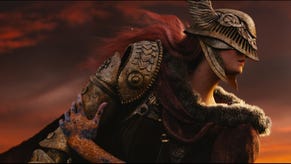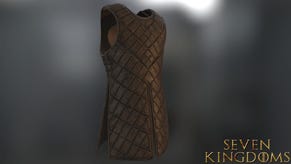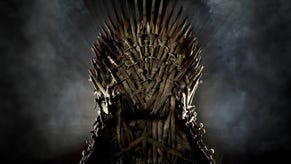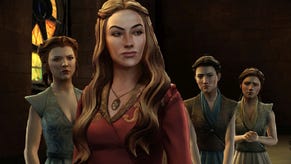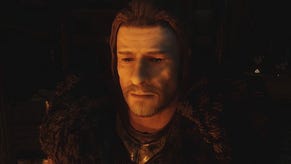Game of Thrones: Iron from Ice Xbox One Review: Opening Moves
Telltale does an impressive job of capturing the flavor of the popular series.
This article first appeared on USgamer, a partner publication of VG247. Some content, such as this article, has been migrated to VG247 for posterity after USgamer's closure - but it has not been edited or further vetted by the VG247 team.
Most of the time, Game of Thrones finds its drama in failure. Plans go awry; characters unexpectedly die in brutal fashion, and whole houses rise and fall on the back of some perceived slight or simple madness.
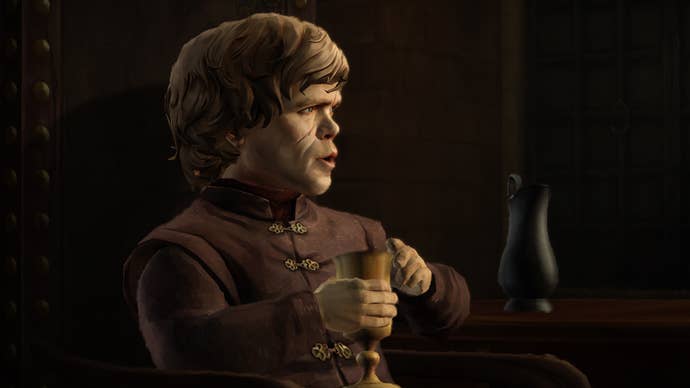
With that in mind, if Telltale's latest foray into licensed properties does anything right, it's to capture that shock of failure—the sense that the world has just spun off its axis and the normal narrative rules no longer apply. Much like the end of the first season, it left me wondering what was next for the various characters, and what (if anything) I had done wrong.
It begins, appropriately enough, shortly before the Red Wedding—the now infamous bloodbath that has become a synonym for disaster in other areas of pop culture. Before I continue, I suppose I should mention that you really, really want to watch the show (or read the books) before you pick this game up. Telltale's story takes place right at the end of Season 3 and includes many well-known main characters, and it relies heavily on foreknowledge of the show's events. It's a risky move by Telltale, inviting direct comparisons with the well-regarded teleivision show, but one that I feel ultimately pays off in a story that fits snugly into the existing universe.
In any case, the story opens during the events of the Red Wedding with Gared Tuttle—a squire in the service of House Forrester, which in turn is allied with the Starks. The Red Wedding leaves him alone and desperate; and soon after, he encounters one of the story's first important choices—a Telltale trademark popularized by its adaptation of The Walking Dead. Later, the story begins shifting—in true Game of Thrones fashion—between three locations: House Forrester's fortress of Ironrath, King's Landing, and the road to The Wall.
I mentioned earlier that Telltale's take on the series shares its knack for dramatizing failure, so I should mention that it also shares some of the show's weaknesses; namely, the fact that at least a quarter of the show's storylines are borderline unbearable. Thankfully, Game of Thrones Episode 1 never quite reaches Ramsay/Reek territory (though Ramsay does have a major part to play in this story), but Gared is on the road to Jon Snow territory in more ways than one, which is to say that he's not terribly interesting (nor even that pretty, unlike his counterpart in the show). Admittedly, Gared isn't afforded as much screentime to develop as his cohorts, but it nevertheless bears mentioning as a potential weakness going forward.

Not surprisingly, the most engaging storyline takes place in King's Landing, where Tyrion, Cersei, and Margaery—three of the show's best characters—all play a prominent role. The best scene by far, and the one that does the most to sell me on the series going forward, takes place in the throne room, Cersei icily interrogating the overmatched handmaiden Mira Forrester while Margaery looks on anxiously. So much of the show's appeal is derived from its subtext and interplay of conversations that take place between powerful people in gardens, hallways, and brothels, and I felt real pressure to respond appropriately as time ticked away on the conversation option and Cersei glared down at me. When it was all said and done, my girlfriend turned to me and said, "You're really bad at this." But the thing is, there's never any "right" answer in Game of Thrones; and anyway, I've always identified with the Starks, and we all know how well they do with politics.
While Mira politicks with Margaery and Cersei in King's Landing, Lord Ethan does his best to inspire confidence in men three times his age in Ironrath—the last of Telltale's three storylines and the one that can be considered the most original to the game, though I'm guessing it has some grounding in the actual lore. It was here that I felt the greatest amount of indecision, since I know the Game of Thrones universe to be deeply cynical and realistic, which me made question some of my basic inclinations. In the end, I'm not sure it really mattered which way I went, but I felt enough of the tension and pressure of the decisions to buy into the family's plight and not want to screw up, which is crucial to much of the story's tension.

Having finished the first episode, I'll say that I was impressed by how well Telltale captured the flavor of the television show—the moves and countermoves, the backbiting, and of course, that slow spiral of hopelessness that seems to characterize so much of the show's arc. I was half-expecting to be embarrassed by a half-baked representation of Tyrion's famous wit, or Cersei's special brand of crazy; but as it turns out, the established characters comprise the best part of Telltale's story, by design making Ethan and Mira (and by extension, the player) seem almost like hopeless amateurs. In that way, Game of Thrones' backstabbing politics prove a great fit for Telltale's particular brand of storytelling.
As always, the implict bargain that Telltale strikes is that they will tell a great story that is faithful to the property they are adapting irrespective of their clunky engine and quicktime mechanics. I suppose I would remiss if I didn't mention that the engine is indeed still ponderous (not to mention prone to long freezes as it loads up a conversation choice), and that anything resembling gameplay in Game of Thrones is purely coincidental. These days, Telltale is much more about crafting an interactive novel than an adventure game in the traditional sense of the word, and their tech is starting to look a bit long in the tooth.
Most of my misgivings about the engine fall away though when I see Cersei's glare or Tyrion's smirk—both oh-so-familiar fixtures in the television show. The highest praise I can pay Game of Thrones Episode 1 is that its faithful depiction of the series has whetted my appetite for both the next episode and the new season of the show, both of which now seem so far away.
VisualsTelltale's engine feels creakier than usual, but it's redeemed by some excellent art. Long pauses disrupt the flow of some of the conversations.
SoundCast members from the show portray their individual characters, lending the story a certain degree of gravitas. To their credit, Telltale manages to keep pace without their own characters looking foolish in the process.
InterfaceMatching the on-screen cursor with a target and hitting the appropriate button feels unwieldly during what passes for combat. Movement feels slow and clunky in general.
Lasting AppealGame of Thrones Episode 1 can be finished in one sitting, but it sets the stage for an intriguing story to be told in five episodes to come.
ConclusionAdapting a prestige cable drama like Game of Thrones is no easy feat and could have easily ended in embarrassment for Telltale Games. Thankfully, they've done a very good job of capturing the show's often depressing essence, setting the stage for an intriguing story to come. With the show's fifth season still four months out, Iron from Ice proves itself a very good appetizer for one of the most popular series on television despite the occasional technical hiccup.


